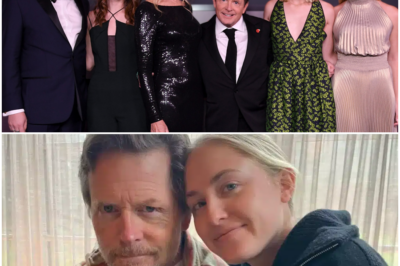AGED 21, Joanne Mackel walked into Northumbria Police Station on her first day as an officer recruit.
Her reason for joining was simple: She wanted to find out the truth about what happened to her mum, Ann Law, who had disappeared in 1973 when Joanne was just five.
the trainee cop also wanted answers about what she believed was a bungled police investigation.
In 1983, ten years after Ann was last seen alive, Joanne’s dad, Gilbert Law, was charged with her murder — after he had asked his son Trevor to help “dig up your mam”.
The case was eventually abandoned, but Joanne, who served in the police under her mother’s maiden name, Wallace, was convinced he had done it.
“I was only five years old when my mam disappeared,” she tells me, when we meet at her stylish home near Morpeth, Northumberland.
“I’m 57 now, and I’m determined to hold the police to account for what I believe are catastrophic failures in the investigation.
“Had it been handled properly, I might not have spent 50 years wondering where my mam is buried.”

I first met Joanne in summer 2023, when she contacted me to ask if I would help investigate what happened to her mother.
The outcome is a six-part podcast series on the case, launched to mark the 52nd anniversary of Ann Law’s disappearance.
Joanne has the steel of a seasoned detective, reminiscent of Helen Mirren’s DCI Jane Tennison in Prime Suspect. Equally sharp and unflinching, she is the kind who could stare you down in an interview room.
She is also as glamorous as Tennison, her blonde hair carefully styled and her make-up perfect.
Cold Case Reopened: The Search for Justice for Pat Hall
“It must be genetic,” she says with a smile. “My mam would never leave the house without lippy on.”
In 1973, Joanne’s family consisted of her nine-year-old brother Trevor, her father Gilbert [a merchant seaman] and her mother Ann, 34, to whom the children were devoted.
Out of control
Ann was an identical twin, and very close to her sister Margaret.
Recalling the tragic day when she last saw her mother, Joanne says:
“We went to bed on a Saturday night and a few hours later there was loud banging and the sound of Mam screaming, so Trevor went downstairs.”
What her terrified brother told Joanne did not make sense to a five-year-old.
She continues: “He said that he had seen Mam lying by the fireplace, not moving, and Dad was sitting in his chair, staring at her.”
The next day, when Ann did not show up for a planned outing, her sister Margaret came to the house.
“I was upstairs looking out of the window from my bedroom, and I could hear her shouting at my dad,” says Joanne.
In the late 1960s, Gilbert had been diagnosed with paranoid schizo- phrenia, and his medical records immediately prior to Ann’s disappearance show that he was spiralling out of control.
He had already twice tried to kill Ann and the children — once by cutting the car brakes and another time by leaving the gas on.
“He should have been locked away for the safety of his family and others,” says Joanne.
“Things would have been so different now if someone in authority had acted.”
Shortly before disappearing, Ann had separated from Gilbert, changing the locks and taking out a restraining order against him.
But Gilbert ignored it and bullied his way back into the family home.
“Police should have arrested him,” says Joanne. “But these were the days of Life On Mars [the BBC TV series that lays bare the casual sexism present in 1970s policing].
“And in those days, domestic violence wasn’t considered a crime.
“I saw him kick her to the ground, punch her in the face. I’ve seen her lying there in so much pain she couldn’t get up to come and get hold of me when I was crying after Dad stormed out.”
Ann’s disappear- ance was treated as a domestic or “voluntary missing person” situation.
“The police didn’t even search the house that morning,” she says.
“If they had, they would have seen she hadn’t taken any clothes, make-up, purse or passport. And, of course, she left us, her precious children, behind.”
Margaret reported her twin sister missing that same day. The following day, the first stage of Ann’s divorce papers came through — but police failed to make the connection.
Joanne said: “They insisted she had gone away to London, or shacked up with another fella, despite the fact she had only ever left the home to escape the violence.”
Because police only interviewed Gilbert as a witness — not as a suspect — he was free to board a merchant navy ship bound for the Caribbean, having made arrangements for his children to enter an orphanage.
Instead, they were placed in foster care with Christine and Thomas Hamill, where they were to suffer years of physical, sexual and psychological abuse.
I saw him kick her to the ground, punch her in the face. I’ve seen her lying there in so much pain she couldn’t get up to come and get hold of me when I was crying
By 1982, a 15-year-old Joanne was still living unhappily with the Hamills, trying to do well at school.
But Trevor, who had already left the house to escape the beatings, was unravelling. Then, something extraordinary happened.
Gilbert, who still insisted on sporadic contact with his children, took Trevor, then 18, and his cousin Stephen to the banks of the River Tyne at Bywell, between Hexham and Newcastle, after saying to Trevor:
“Do you want to come with me to dig up your mam?
“I’ll show you where your mam is. Do you want to come with us?”
The boys accompanied Gilbert to a local beauty spot — a place Ann had loved.
“We got out of the car, and he had a spade in each hand,” says Stephen, when I meet him at his home in Gretna Green on the Scottish border.
“The ground had already been disturbed, and I could see someone had been digging. Trevor started digging with his dad. I’m holding the torch and Trevor’s digging.”
Too grotesque
No body was found, but Gilbert was subsequently charged with Ann’s murder. This followed a confession that was obtained by his own son when police put Trevor in a cell with his father.
“Trevor didn’t recover from that experience,” says Joanne, tearful as she speaks about her beloved brother, who went on to die of peritonitis, brought on by heroin use, in 2001, aged 34 — the same age his mother was when she disappeared.
Gilbert was tried in November 1983, but the case was halted when he had a psychotic episode while giving evidence.
A second trial in June 1984 ended with the judge ordering a not guilty verdict on medical grounds, but directing the CPS to keep the case on file in case Gilbert was ever deemed fit to stand trial.
Joanne tried to get on with her life and threw herself into her role as a police officer. Then, in 1997, she came across Operation Rose, an investigation into child sexual abuse in children’s homes.
She says: “I was in one of the homes they were looking into, because I had been placed there having begged the social worker to get me out of the Hamills’ because of the abuse. I decided to tell my police colleague everything I knew, and the next thing, I’m at trial giving evidence against Thomas Hamill and his son, Martin.”
Christine Hamill was arrested for assault on Trevor, but the CPS would not authorise a charge.
Both men stood trial in 1999 and again in 2000. Thomas Hamill was acquitted due to CPS procedural mistakes, but Martin was convicted of indecent assault and unlawful sexual intercourse with a child under 13.
He was placed on the sex offenders register for ten years.
Joanne says: “I will never forget standing there giving evidence at the trial. I was asked by the defence barrister, ‘You were very mature for your age — you had very large breasts, didn’t you?’.
“I couldn’t believe it, they were trying to blame me for being abused.”
Out of all her painful experiences, what hurts Joanne most is losing her brother.
She says: “He never stopped looking for Mam. When Fred and Rose West were arrested — 19 years after she went missing — Trevor went to their home and stood outside for hours, waiting to hear if she was one of their victims.”
Since the murder trial in 1983, little has happened in what has become Northumbria Police’s longest-running missing person case.
A cold case review led to another excavation at the same spot that Gilbert took Trevor and his cousin to dig.
He [Trevor] never stopped looking for Mam. When Fred and Rosemary West were arrested — 19 years after she went missing — Trevor went to their home and stood outside for hours
“In 2010, they found a human cheek bone,” Joanne tells me. “They asked for my DNA, and I said at that point, ‘For God’s sake, she’s got an identical twin sister, they have the same DNA’.”
In 2005, when her father was dying, police asked Joanne to wear a wire to see if she could coax a confession from him.
She refused, deciding it was too grotesque a thing to do. Joanne retired from the police in 2017, having solved a number of rape cases and helped countless women escape domestic abuse.
She has been commended for her exemplary policing on numerous occasions, but keeps the certificates in a box, not framed and hung on the walls.
“The one case I desperately wanted to solve was what had happened to my mam,” Joanne says.
“But I can comfort myself by knowing I have helped other women from meeting the same fate.”
News
“¡Impactante! Karoline Leavitt, 27, y Nicholas Riccio, 59: ¿Cómo Superaron la Controversia del Gran Diferencial de Edad en su Relación? ¡La Verdadera Historia Detrás de su Amor Inquebrantable!”
Karoline Leavitt’s Heartfelt Wedding Reveal: Fans React to Her Age-Defying Love Story with Nicholas Riccio Karoline Leavitt, the 27-year-old former…
“Shocking News: Four of Michael J. Fox’s Kids Reveal a Life-Changing Announcement – What Are They Sharing That Has Everyone Talking?”
Michael J. Fox, an award-winning actor known for his numerous roles, considers fatherhood his most cherished role. Despite his successful…
“Shocking Murder Mystery: Was Wendi Adelson Behind the Plot to Kill Her Ex-Husband Dan Markel? The Truth About His Killing and Where She Is Now!”
Over a decade after Dan Markel was murdered at his Florida home, his ex-wife, Wendi Adelson, and her family are…
Lizzo and the Lawsuit from Dancers: The Aftermath on Television
Lizzo and the Lawsuit from Dancers: The Aftermath on Television In 2023, Lizzo, the famous singer known for her confident…
“Drew Barrymore: The Secret Behind the Smile – Is the WGA Strike Battle Still Ongoing?”
“Drew Barrymore: The Secret Behind the Smile – Is the WGA Strike Battle Still Ongoing?” In 2023, Drew Barrymore –…
“Shocking Revelation! Michael Jackson’s Grave Opened After 15 Years: What Was Found Inside Shocks the World”
The Shocking Revelation About Michael Jackson’s Grave: What Was Found After 15 Years Changes Everything We Knew Michael Jackson, the…
End of content
No more pages to load

















